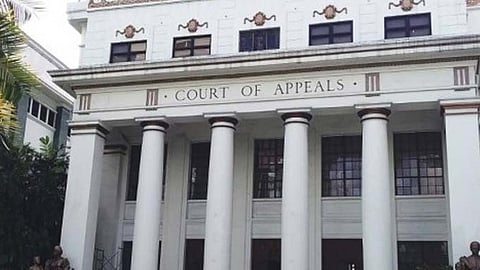
- NEWS
- the EDIT
- COMMENTARY
- BUSINESS
- LIFE
- SHOW
- ACTION
- GLOBAL GOALS
- SNAPS
- DYARYO TIRADA
- MORE

The Court of Appeals (CA) has denied the plea of two accused in the 2023 killing of Negros Oriental Governor Roel Degamo and eight others to dismiss the criminal charges against them.
In a 33-page decision, Associate Justice Louis Acosta of the CA’s Fourth Division affirmed the rulings issued on 22 August and 15 November 2023, by the Regional Trial Court (RTC) Branch 40 of Manila, which denied the motion to quash informations, suppress evidence, and conduct preliminary investigations filed by Joric Labrador and Benjie Rodriguez.
The two, along with several others, are facing multiple counts of murder, frustrated murder, and attempted murder under the Revised Penal Code in connection with the assassination of Degamo.
Labrador was also charged with illegal possession of firearms and ammunition under Section 28 of Republic Act 10591, or the Comprehensive Firearms and Ammunition Regulation Act. Rodriguez, on the other hand, faces additional charges for violating Republic Act 9516 due to unlawful possession of firearms, explosives, and ammunition.
Before their arraignment, the petitioners filed a motion to quash the informations against them, suppress evidence allegedly obtained through a warrantless arrest, and request a preliminary investigation should their motion be denied.
They argued that their arrest was unlawful, as it was neither a valid warrantless arrest nor conducted under a legitimate hot pursuit operation. Additionally, they contended that there was no probable cause for their arrest since the CCTV footage did not clearly identify the culprits.
The petitioners further claimed that the firearms seized from them were planted and that their extrajudicial confessions were made under duress and without the presence of an independent legal counsel of their choice.
However, the CA upheld the trial court’s findings, ruling that the prosecution had established the necessary elements of “personal knowledge” and “immediacy” to justify the hot pursuit operation and warrantless arrest of the accused.
While the arresting officers did not personally witness the shooting, the CA noted that they arrived at the crime scene immediately and reviewed CCTV footage revealing the getaway vehicle.
"Succinctly put, this Court believes that the trial court had sufficient legal basis in finding that the element of ‘personal knowledge’ in a hot pursuit operation was duly complied with,” the ruling stated.
The appellate court also emphasized that the element of “immediacy” was present, further justifying the warrantless arrest.
The CA likewise dismissed the petitioners’ claim that their extrajudicial confessions were inadmissible due to torture and coercion.
"A perusal of the petitioners' extrajudicial confessions shows that there is nothing therein which indicates that they were coerced or were laboring under duress when they executed the same," the CA ruled.
“In fact, a reading of said confessions immediately shows that petitioners were informed of their constitutional rights, especially those applicable during custodial investigation, and that, with their express consent, they were also assisted by lawyers from the Public Attorney’s Office (PAO) in executing the same,” it added.
